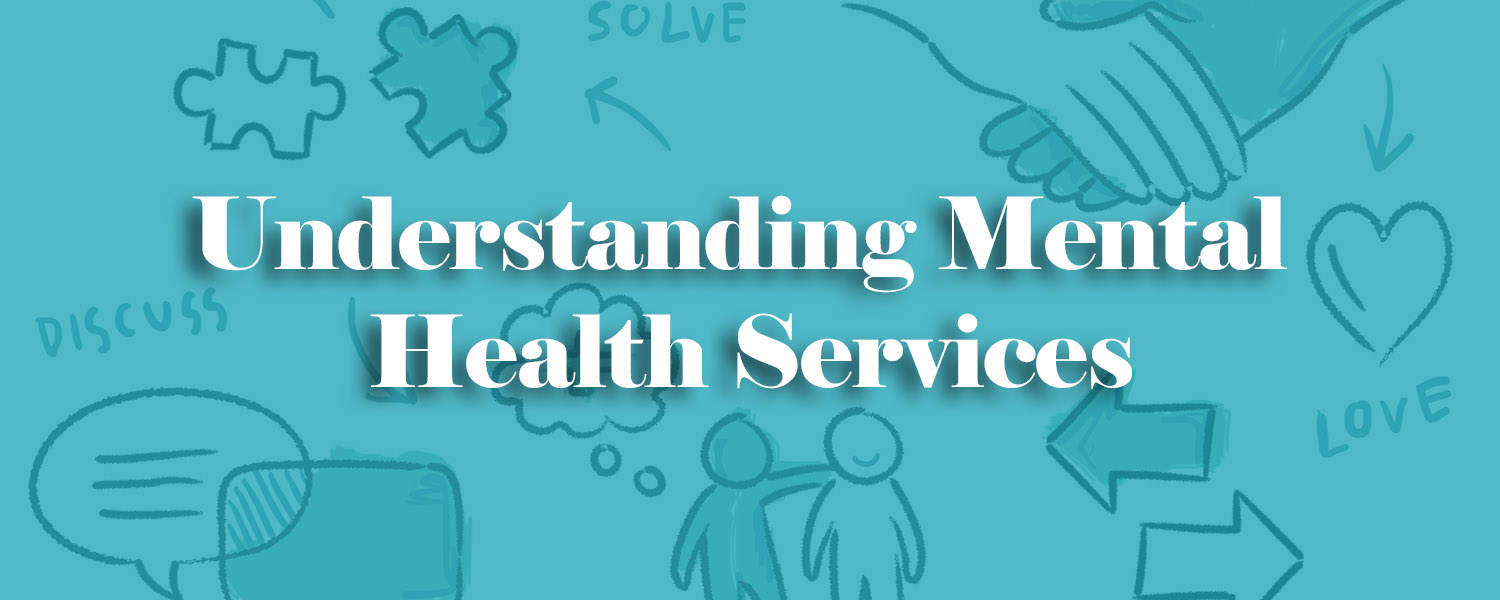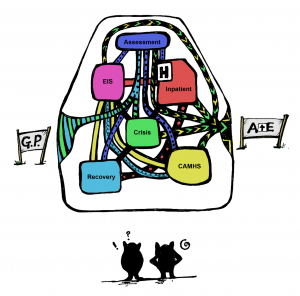
Clinical Teams
The exact structure and the names of teams will vary across the country. All teams should have a recovery focus. For more information on recovery see Chapter 12.
The main teams you are likely to come across are as follows. How all the teams work together can seem confusing like in the image below, so below is a list of what each team does. Understanding and remembering the structure of Mental Health services can sometimes feel like trying to remember which wires go where, like when you are rushing to change a plug! (See below)

GP
GPs are often your first point of contact. You can ask them for an assessment or for a referral to specialist mental health services described below They can also recommend treatment.
Assessment and brief intervention team
Some areas have a specialist assessment and brief intervention team for mental health as part of the primary care services. These teams will assess people who are new to mental health services and try to either refer them to the most helpful services for them or offer them brief treatment within that team.
EIS – Early Intervention Services
Support for people with early or suspected signs of psychosis or severe mood disorders. Often intensive input focusing on early detection and treatment. Many Early Intervention Services can be contacted directly so check the website of your local NHS Trust.
Accident and Emergency
Mental health problems may develop quickly and need urgent treatment. Mental health professionals are available in A&E departments to carry out an assessment and refer to the most appropriate specialist services.
Inpatient services
Special mental health wards where people can go when they are too ill to remain at home. Availability can be limited in some areas, leading to “out of area treatment”. This can mean people are admitted to hospitals which are a long way from home, making it more difficult for relatives and friends to visit.
CAMHS – Child And Adolescent Mental Health Services
Specialist support for people under 18 with wide range of mental health problems.
Crisis resolution and home treatment team
24 hour service that can visit you in your own home. Often involved during acute episodes of psychosis or where there is risk of suicide, self harm or harm to others. Aim to keep people out of hospital, or support them back into the community following a hospital stay. Some crisis teams can be contacted directly.
Recovery team or Community Mental Health Team
Provides ongoing support for people with long-term mental health problems. They focus on preventing relapse and promoting recovery, including building social networks and helping people invest in meaningful activities.
Multi-Disciplinary Teams (MDT)
Many of the teams described bring together clinicians from a range of disciplines, typically psychology, psychiatry, nursing and social work to try to best address the wide range of challenges people might be experiencing.
The important thing to remember is that the services are there to help you – no matter how varied these may be across different age groups and geographical locations.
Occasionally mental health staff will use different titles and acronyms for the services they deliver – do not be afraid to ask for clarity. Services do change their names and not everyone (including staff) change their points of reference.
There are a range of ways your relative can access services. Please be reassured that NHS staff do understand the complexity of the systems they work within, and with time you’ll learn the structure of services in your area too.
There are other sources of support available that you might find helpful, such as recovery colleges, local charities, and voluntary organisations. (See support section for more details.)


